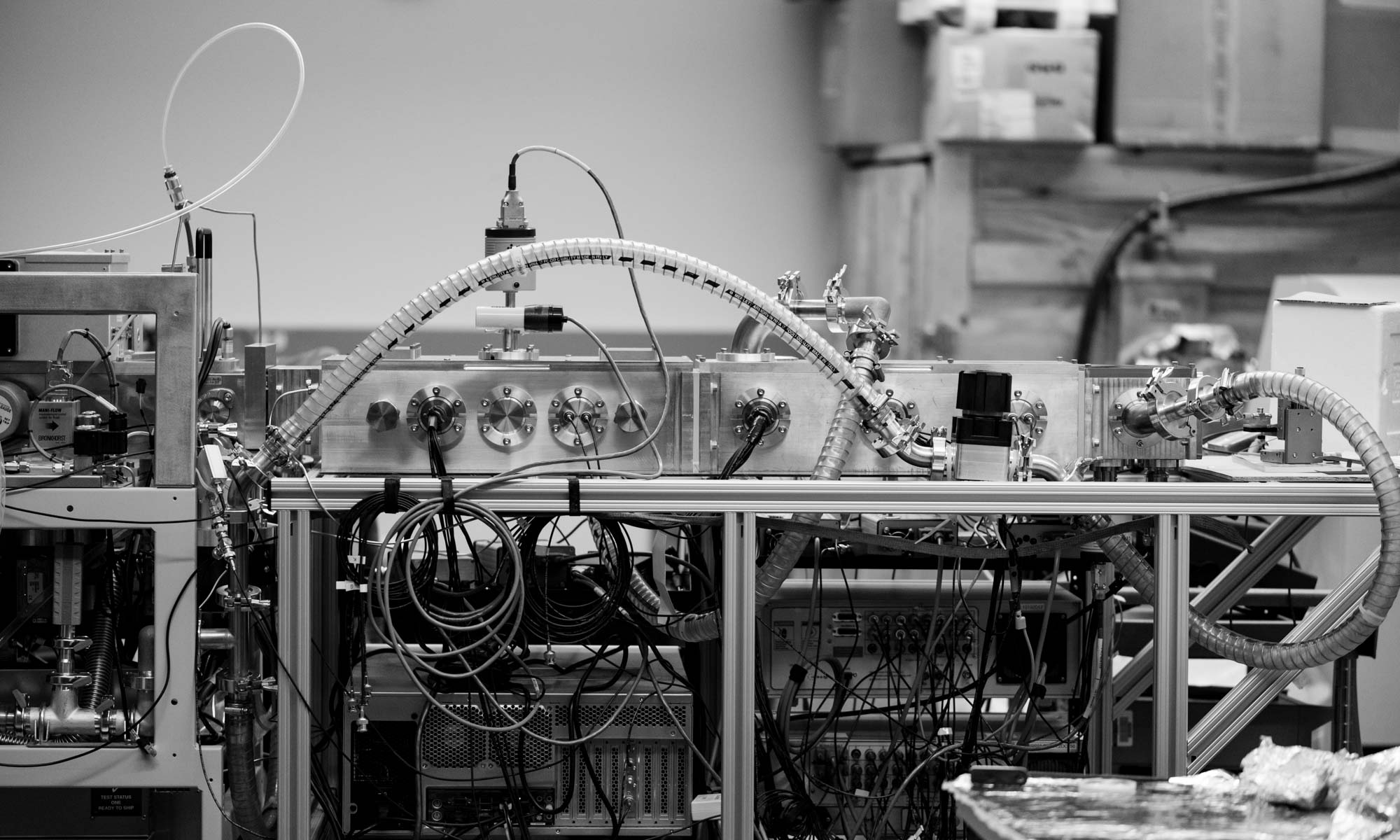 The Bush Lab welcomes Alicia Schwartz! Click here to learn more about Alicia.
The Bush Lab welcomes Alicia Schwartz! Click here to learn more about Alicia.
New Lab Member: Cindy Wei
 The Bush Lab welcomes Cindy Wei! Click here to learn more about Cindy.
The Bush Lab welcomes Cindy Wei! Click here to learn more about Cindy.
Recent Semiars
Prof. Bush recently presented the following seminars:
- Department of Chemistry & Biochemistry, Chico State (11/9). MFB thanks Prof. Dan Edwards for hosting this visit.
- Department of Chemistry, Sacramento State (11/8). MFB thanks Prof. Ben Gherman for hosting this visit.
- Department of Chemistry, Whitman College (10/19). MFB thanks Prof. Steve Hughes and Prof. Nate Boland for hosting this visit.
- Department of Chemistry, Wayne State University (10/10). MFB thanks Prof. Mary Rodgers for hosting this visit.
Whidbey Island Camping Trip
New Publication: Ion Mobility of Peptide Ions
One difficulty in using ion mobility (IM) mass spectrometry (MS) to improve the specificity of peptide ion assignments is that IM separations are performed using a range of pressures, gas compositions, temperatures, and modes of separation, which makes it challenging to rapidly extract accurate shape parameters. We report collision cross section values (Ω) in both He and N2 gases for 113 peptide ions determined directly from drift times measured in a low-pressure, ambient temperature drift cell with radio-frequency (rf) ion confinement. These peptide ions have masses ranging from 231 to 2969 Da, ΩHe of 89–616 Å2, and ΩN2 of 151–801 Å2; thus, they are ideal for calibrating results from proteomics experiments. These results were used to quantify the errors associated with traveling-wave Ω measurements of peptide ions and the errors concomitant with using drift times measured in N2 gas to estimate ΩHe. More broadly, these results enable the rapid and accurate determination of calibrated Ω for peptide ions, which could be used as an additional parameter to increase the specificity of assignments in proteomics experiments.
Ion Mobility Mass Spectrometry of Peptide Ions: Effects of Drift Gas and Calibration Strategies Matthew F. Bush, Iain D. G. Campuzano, Carol V. Robinson. Anal. Chem. 2012, 84, 7124–7130.
Congrats to Sam Allen!


Congratulations to Sam Allen, who tied for 2nd prize in the poster competition at the Cascadia Proteomics Symposium.
Bush Lab at the Cascadia Proteomics Symposium
The Bush Lab and collaborators are presenting the following talks at the Cascadia Proteomics Symposium, which takes place at the Institute for Systems Biology in Seattle from July 19-21.
- Samuel T. Marionni; Weiman Xing; Ning Zheng; Matthew F. Bush. Ion Mobility Mass Spectrometry of a Circadian Clock Protein Complex Reveals a Ligand-Dependent Conformational Switch (Thursday @ 4:40 pm)
- Samuel J. Allen; Samuel T. Marionni; Kevin Giles; Tony Gilbert; Matthew F. Bush. Design and Characterization of a New Ion Mobility Cell (Saturday @ 9:50 am)
New Lab Member: Ken Laszlo
 The Bush Lab welcomes Ken Laszlo! To learn more about Ken, click here.
The Bush Lab welcomes Ken Laszlo! To learn more about Ken, click here.
New Publication: Dissecting Heterogeneous Molecular Chaperone Complexes
Small heat-shock proteins (sHSPs) are molecular chaperones that prevent irreversible aggregation through binding nonnative target proteins. Due to their heterogeneity, the resulting sHSP:target complexes remain poorly understood. We developed a general and automated approach for estimating the distribution of stoichiometries for heterogeneous ensembles of protein complexes. Using this approach, we find that the stoichiometries of sHSP:target complexes depend on both the mass and quaternary architecture of the target, indicating that protection occurs early during denaturation. This investigation therefore explains the apparent paradox of how variable, complex morphologies result from the generic sHSP protection mechanism.
For a perspective on this work, please see Breaking Down Order to Keep Cells Tidy, a preview written by Christine Slingsby and Alice Clark (Birkbeck College).
Dissecting Heterogeneous Molecular Chaperone Complexes Using a Mass Spectrum Deconvolution Approach Florian Stengel, Andrew J. Baldwin, Matthew F. Bush, Gillian R. Hilton, Hadi Lioe, Eman Basha, Nomalie Jaya, Elizabeth Vierling, Justin L.P. Benesch. Chem. Biol. 2012, 19, 599–607.
New Publication: Ion Mobility Mass Spectrometry of Human Insulin Oligomers
The collision cross-section (Ω) of a protein or protein complex ion can be measured using traveling-wave (T-wave) ion mobility (IM) mass spectrometry and calibration with compounds of known Ω. Obtaining accurate T-wave Ω-values via calibration, especially for native-like protein ions, remains challenging. Using human insulin oligomer ions we show how to select appropriate calibration standards, find the optimal instrument settings, and validate the resulting T-wave Ω-values. We also probe subtle conformational differences between human insulin and insulin aspart, a fast-acting insulin analog.
These results are also useful for calibrating other ion mobility experiments, particularly for ions of smaller, native-like proteins and protein complexes. Those values have been added to our collision cross section database.
Traveling-wave ion mobility mass spectrometry of protein complexes: accurate calibrated collision cross-sections of human insulin oligomers Rune Salbo, Matthew F. Bush, Helle Naver, Iain Campuzano, Carol V. Robinson, Ingrid Pettersson, Thomas J. D. Jørgensen, Kim F. Haselmann. Rapid Commun. Mass Spectrom. 2012, 26, 1181–1193.









You must be logged in to post a comment.